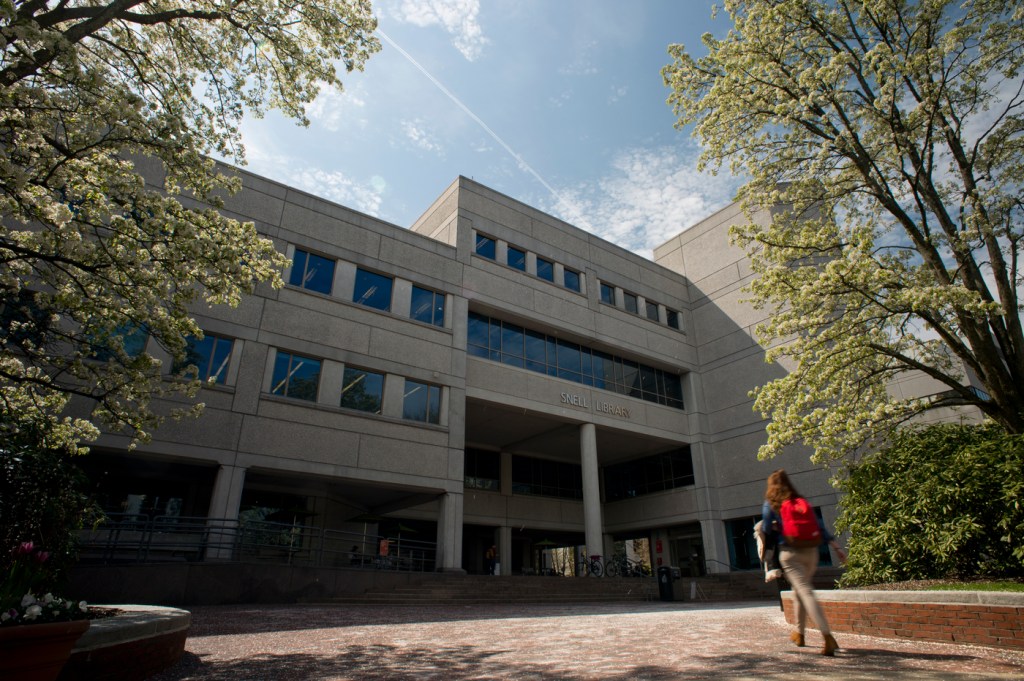Northeastern to host ‘archive-a-thon’ to preserve federal science data

Researchers, coders, librarians, activists, and students will convene at Northeastern on Friday afternoon for an “archive-a-thon” aimed at preserving government science and environmental data.
The effort is part of a national grassroots “data rescue” movement in which events are held to identify and archive a range of federal resources pertaining to the environment—such as studies, reports, and websites—that organizers say are in the public interest but fear could be at-risk.
Interest in preserving and tracking these types of federal data is not new, particularly during transitions between U.S. presidential administrations. But this effort, organizers say, is in response to the Trump administration’s attitude of climate change denial and antagonism toward the researchers in this field and environmental regulations. What’s more, they say federal databases are sometimes difficult to find and navigate, as information is updated or moved.
Jen Ferguson, a research data management librarian at Northeastern and co-organizer of the “data rescue” event on campus, underscored that her interest in joining this movement is in providing the public with access to information.
“One of the reasons I was so energized to participate is that my job is to help people manage and ensure access to their research data,” Ferguson said. “The effort to compile and share this data and make it usable to the public is significant. A lot of care and taxpayer dollars go into making these datasets, and it pains me to think they might not be authoritative or available.”
Some 80 people have registered for the event, which will be held in Snell Library. A few open spots still remain. Ferguson organized the event with two faculty members: assistant professor Sara Wylie, who holds joint appointments in the Department of Sociology and Anthropology and the Department of Health Sciences; and Phil Brown, University Distinguished Professor of Sociology and Health Sciences. Brown directs Northeastern’s Social Science Environmental Health Research Institute, and Wylie is among the institute’s core faculty.
One of the reasons I was so energized to participate is that my job is to help people manage and ensure access to their research data.
Jen Ferguson
Research data management librarian at Northeastern
Wylie and Brown are also founding members of the Environmental Data and Governance Initiative, or EDGI, which is leading the “data rescue” effort along with Data Refuge. The groups focus on tracking and safeguarding government data. They have collaboratively developed a workflow so that each event around the country builds off the previous one and participants use the same data-preservation methods and don’t duplicate efforts.
“Like dominos, we can work our way through federal websites,” Wylie said. Northeastern’s “data rescue” event will focus on archiving data from the U.S. Fish and Wildlife Service website.
Brown, for his part, said he was eager to join the “data rescue” effort. As an environmental health researcher since the 1980s, he stressed the value of environment-related government data—noting that he’s used and generated a host of such publicly accessible information throughout his career. He emphasized that researchers rely on such federal data for their studies and teaching.
“Federal websites are a gigantic source of data, whether it’s for an elementary school class, or a researcher who knows how to use the data, or a community resident interested in learning about carbon emissions in his zip code,” he said.
The “data rescue” event at Northeastern is sponsored by Northeastern University Libraries, DataRescue Boston, Boston Civic Media, and EDGI. Data Rescue Boston events have also been held at Harvard University and the Massachusetts Institute of Technology.





